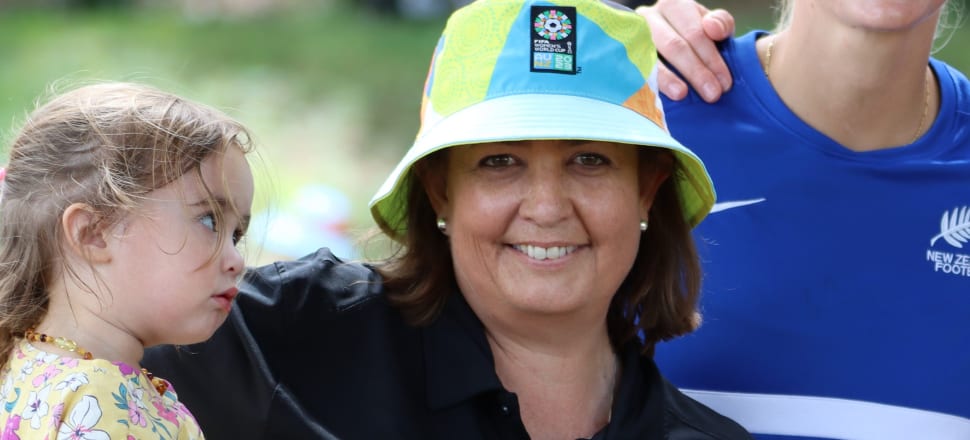
It's Paula Hansen's job to ensure the FIFA Women's World Cup leaves a long legacy for females in NZ, including her granddaughter. She tells Suzanne McFadden how, in our Wāhine of the World Cup series.
As far as Paula Hansen’s mokopuna are concerned, their Granny P plays for the Football Ferns.
When the Unity Pitch – a colourful travelling football field championing the FIFA Women’s World Cup – visited Hamilton, Hansen took her granddaughter Bailey (almost three) and grandson Tama (four) to have a photo with a trio of Ferns.
“My moko know I play football, but now they think I’m in the same team as the Football Ferns. I don’t want to break their hearts at the moment,” Hansen, aka Granny P, laughs.
Hansen, a late adopter of the beautiful game, wishes it were true. But in her day job, she’s able to make an impact on New Zealand football in a different way – ensuring the legacy from the FIFA Women’s World Cup boosts the female game.
And as she does so, she always has Bailey in the back of her mind.
READ MORE: * Final juggling act for mightiest woman in football * Humbled to run world's largest women's sports event
Hansen has been a trailblazer for women’s football in her own right – leading a club, a franchise and a national group in the sport. But now she’s the general manager of Women’s World Cup legacy and inclusion, ensuring the tournament that kicks off this month leaves a lasting impact on Aotearoa and its football.
“Now I have a granddaughter, I want to make sure the world she grows up in doesn’t have the stresses and discrimination that my generation – and every other generation – has faced,” Hansen says. “She shouldn’t need to worry about ‘Can I shower after my game? Will I feel welcome at my club? Will I be the token female on this board?’
“It’s good to have time with her to know this is why I’m doing what I’m doing.”
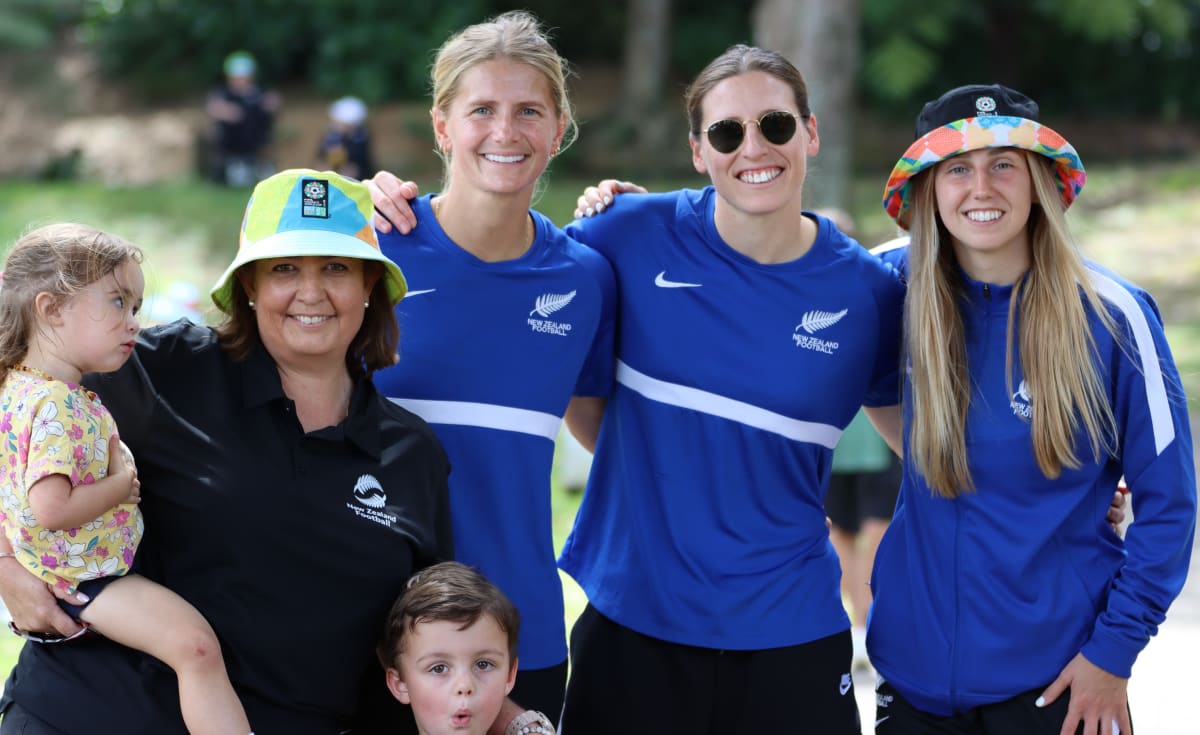
Hansen didn’t get to play football growing up, spending a good chunk of her childhood living in Hong Kong. “Schools over there don’t have a lot of green spaces. We went to English schools where girls played hockey and netball,” she says.
It wasn't until she was well into her 20s that she was introduced to football. Working for the Ministry of Justice in Wellington, Hansen took a job setting up the legal aid office in Napier, moving her then-husband and two sons with her.
“The only people we knew were my husband’s relatives who we lived with for a while. They were heavily involved in Taradale AFC,” she says. “They conned me into playing women’s grade football.”
She only finished playing women’s grade last year after moving to Auckland for her new role at New Zealand Football: “With my job I can’t afford to get injured… and the third-floor apartment I live in doesn’t have a lift.”
The football community was where Hansen and her whānau found their home in the Hawkes Bay. It had always been important in Hansen’s family to serve the community, so she joined the Taradale club committee and then became the first female president of the club. “I just loved it. I didn’t even think about my gender or the impact that had,” Hansen says.
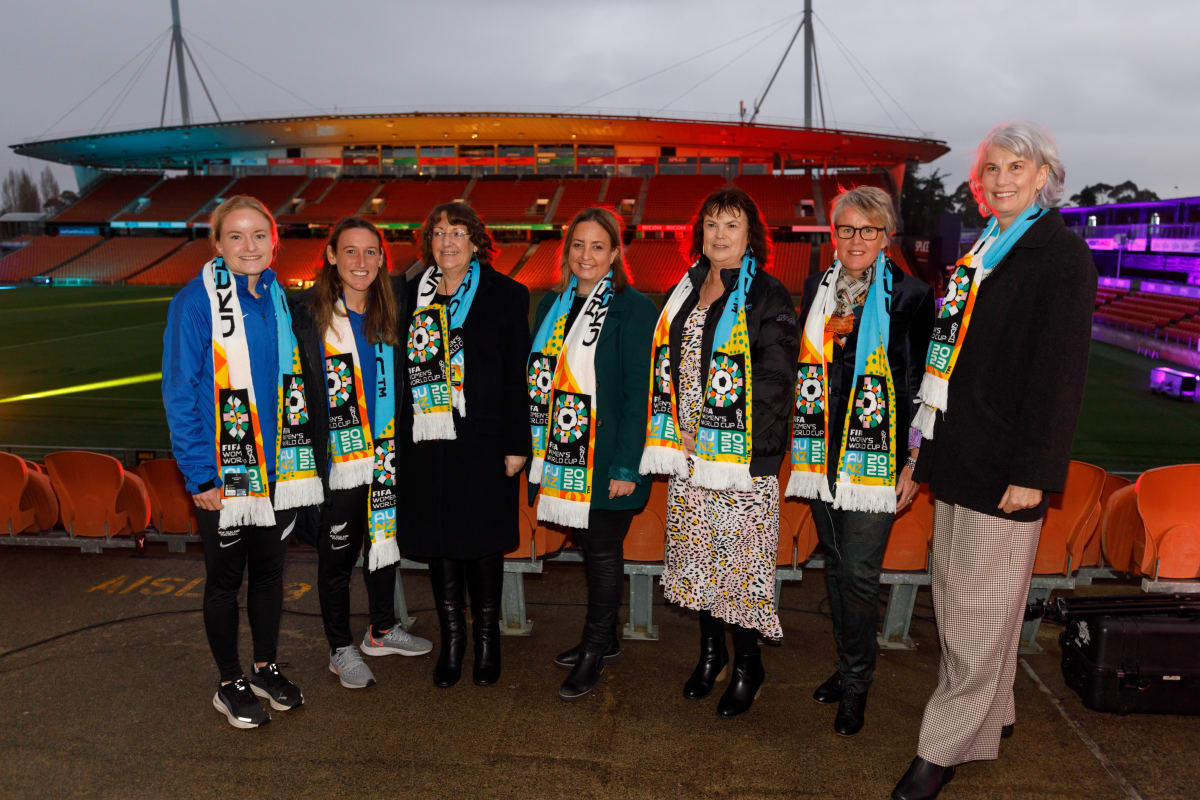
She became a board member of Hawkes Bay United, and joined the Central Football board to get more governance experience. “Then I became chair of Hawkes Bay United, and I was the only woman out of the 10 franchises at the time,” she says.
At the time, Hansen was working fulltime for the Ministry of Justice, raising her two sons and studying part-time for five years for a diploma of tertiary teaching and learning.
“I look back now and to be honest I don’t know how I did it. But I know why I did it, which kept me going,” she says. “Then I coached my youngest son’s football team for a couple of years. I was always clear that technically I couldn’t teach them much, but I could teach them about respect, how to behave on the sideline and how to give back to the game.”
Today her son, 18-year-old Reon Werahiko, plays for the Māori Football Aotearoa men’s team.
In 2019, Hansen was chosen as one of 24 women worldwide to attend the FIFA Women in Football programme in Zurich – a five-day intensive leadership programme. “I learned how I am as a leader,” she says. “And it taught me to think more strategically rather than the really comfortable cocoon I had in the Hawkes Bay. I felt part of a new wave of female football leaders across the globe.”
It was there she made friends with former Matilda’s football star Sarah Walsh, who’s now filling the same legacy role as Hansen, but for tournament co-hosts Football Australia.
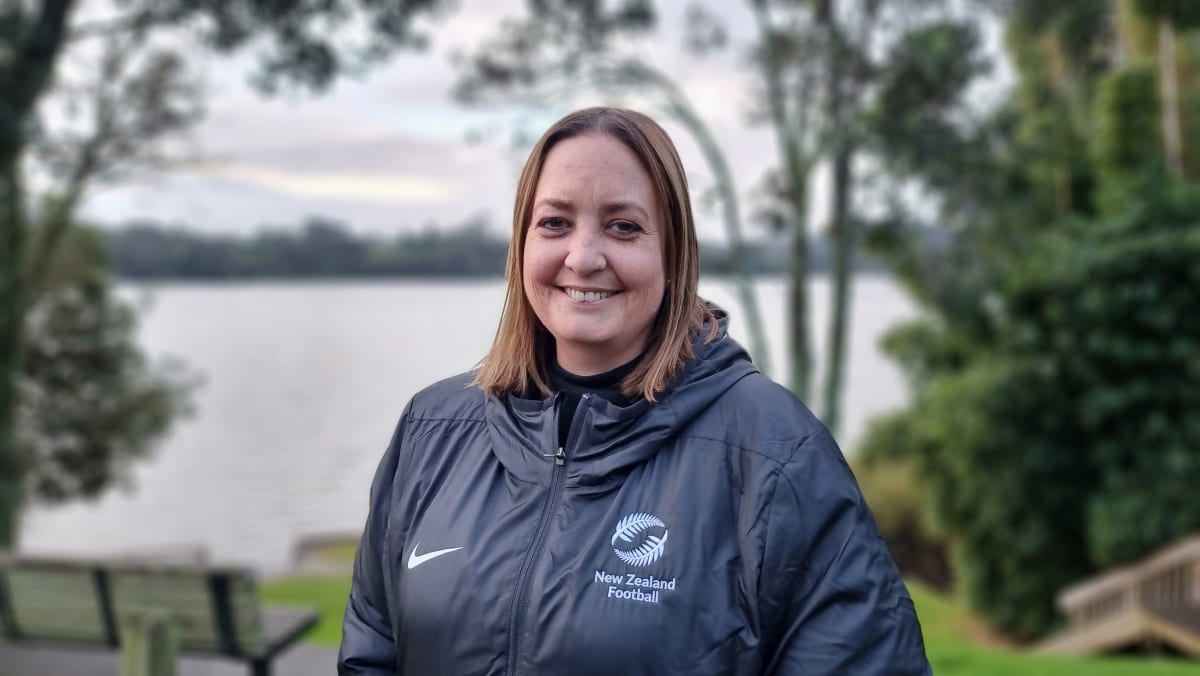
Hansen was on a committee which recommended the men’s national league change from franchises to clubs in 2021, which meant her Hawkes Bay United could no longer enter. “It was a tough moment professionally – we’d clawed our way through some really tough times. But it was the best decision for football,” she says.
Just as United’s final season wrapped up, the role of legacy and inclusion manager around the 2023 Women’s World Cup came up. “The general manager title freaked me out a bit – all my past general managers were older men in corner officers, finger pointing. That’s not me,” Hansen says. So she had a long chat with NZ Football president Johanna Wood about it, and decided to apply.
Hansen started in the role late in 2021, and the first year focused on launching the legacy plan, Legacy Starts Now.
She also spent “significant hours” talking with World Cup host cities, local councils, the government and FIFA, working out funding and agreements for the first major project – putting in new lights, pitches, shower cubicles and removing urinals at grounds around the country to make clubs welcoming to female players.
“It’s a massive legacy outcome,” Hansen says. “Even just the deep clean and scrub, and individual showers alone, are a gamechanger for our football communities.”
When she took FIFA Secretary-General Fatma Samoura to visit the upgraded Ellerslie club, Hansen learned a young female player said this season, for the first time, her team has showered at the club after a game.
“Then they went to the clubrooms and enjoyed an after match. In the past they went home and showered and lost that the social spirit,” she says.
“Those impacts are really hard to measure but we know if that means a young girl, or returning mum, can feel they can shower in private, feel safe, warm and welcome, they are more likely to stay in the game.”
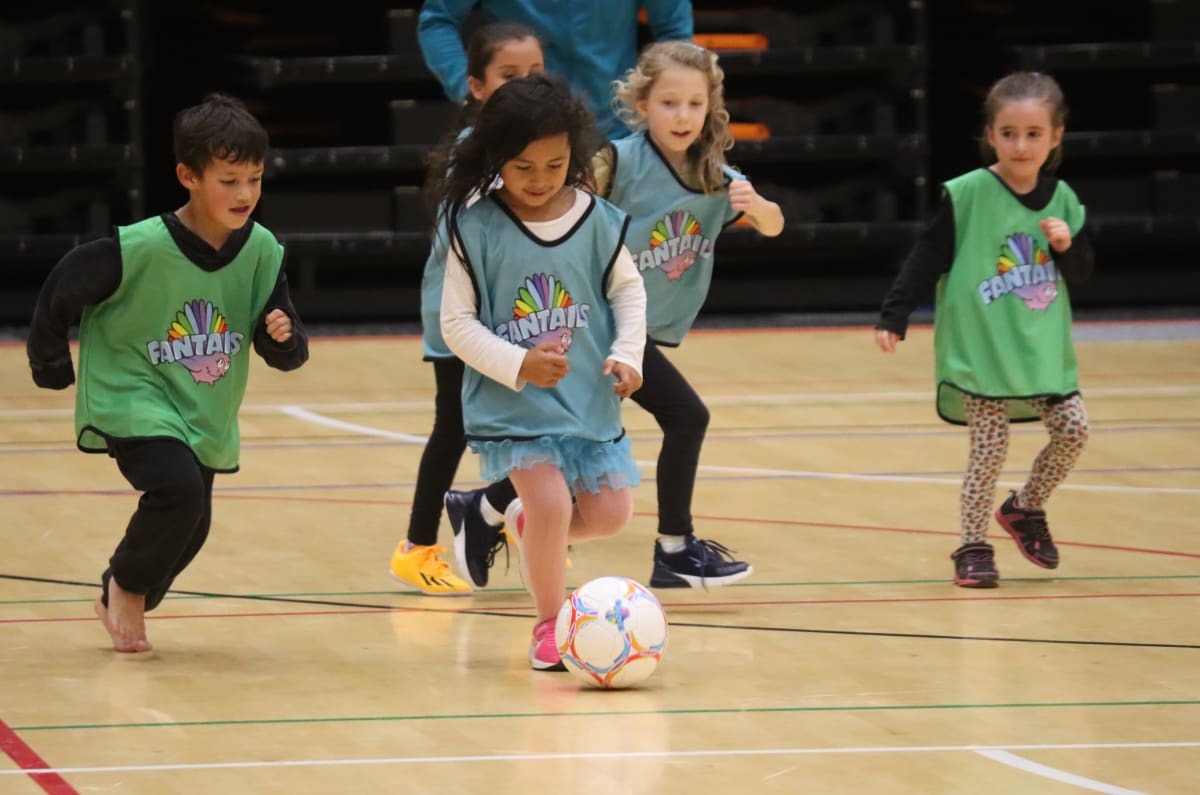
Hansen and her team are working closely with different communities of women – including Muslim, Pasifika and Māori – discovering what they need to get young women interested in football.
They’ve launched programmes like Fantails, attracting girls aged four to 12 to the game, and Kōtuitui in schools, using the context of the World Cup to learn about culture and football. After the tournament, they’ll redistribute $400,000 of football equipment used around the country.
“Legacy is a word that’s bandied around a lot and means many different things. We talk about legacy as our intention to provide opportunities to anyone who wants to be in the game,” Hansen says.
“Our legacy plan and the way we’ve structure our programmes and opportunities is making sure we reflect on our past, be present but also look to the future. I don’t like to say ‘to be better’ – our game is already in a good space in a lot of areas – but how can we be inclusive and welcoming? And how in the future, do we just talk about football?
“After the tournament, there will be a bit of a lull with the end of the football season. So what do we put in place to keep the game in the spotlight and keep girls interested until they join a club in 2024? Then how do we keep them playing in 2025?
“This is the time for change. And deep meaningful change.”
Hansen is enjoying this change in her already full life. She’s also making room to study tikanga Māori, spend time with her grandchildren, and watch her son play football.
“For the first time in his life, I can watch my son play simply as his mum. Back home I was the coach, the president of the club, or a Central Football board member,” she says. “For me, it’s so good to just be 'Reon’s mum' on the sideline.”
* Football Ferns head coach Jitka Klimková will name her squad for the FIFA Women’s World Cup 2023 at 12.15pm Friday, at the venue of the first game of the tournament, Auckland's Eden Park.







